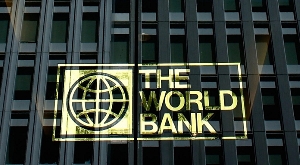 The fresh funds will support Nigeria's efforts to stabilize the economy
The fresh funds will support Nigeria's efforts to stabilize the economy
The World Bank approved $2.25 billion in funding to support Nigeria’s economic reform efforts, helping to boost the supply of hard currency on the local foreign-exchange market.
The fresh funds will support Africa’s largest oil producer’s efforts to stabilize the economy and assist the poor and most economically at risk, the Washington-based lender said in a statement on Thursday.
It will also help the country raise non-oil revenues and safeguard oil revenues to promote fiscal sustainability and deliver quality public services, it said.
Nigeria has battled years of acute foreign-exchange shortages arising from low crude production and a lack of economic diversification. Since coming to office in May 2023, President Bola Tinubu has worked to address the scarcity with a series of reforms aimed at attracting foreign investors and boosting economic growth.
They include the central bank clearing a $7 billion backlog of unmet foreign-exchange obligations to industries and foreigners, allowing the naira to trade more freely, increasing interest rates steeply and sharply adjusting gasoline prices to phase out a costly fuel subsidy.
“Nigeria’s concerted efforts to implement far-reaching macro-fiscal reforms place it on a new path which can stabilize its economy and lift its people out of poverty,” said Ousmane Diagana, the World Bank vice president for Western and Central Africa. “This financing package reinforces the World Bank’s strong partnership with Nigeria, and our support towards reinvigorating its economy and fast-tracking poverty reduction, which can serve as a beacon for Africa.”